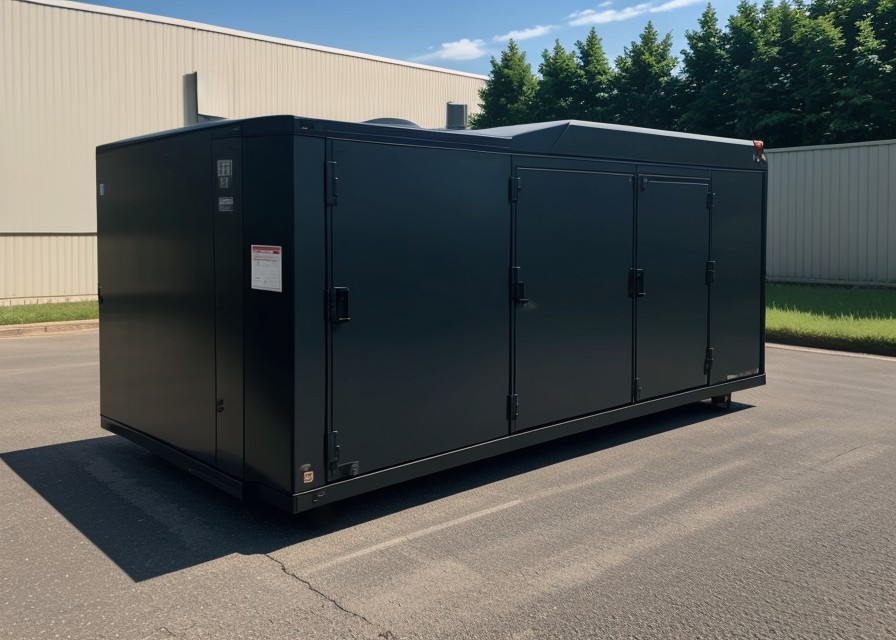Diesel Generators for Capacitive Loads Ensuring Reliable Power Supply

Introduction:
In today's modern world, power outages can have severe consequences, especially for businesses and critical infrastructure. To combat this issue, diesel generators have emerged as a reliable solution for providing backup power during emergencies or when the grid fails. However, while diesel generators are commonly used for a variety of applications, they are particularly well-suited for capacitive loads. This article explores the importance of diesel generators for capacitive loads and delves into their key features, advantages, and considerations.
Section 1: Understanding Capacitive Loads
To comprehend the significance of diesel generators for capacitive loads, it is essential to first grasp the concept of capacitive loads. In electrical engineering, capacitive loads refer to devices or systems that require a reactive power supply due to their inherent capacitance. These loads are commonly found in industries such as manufacturing, telecommunications, data centers, and medical facilities. Examples of capacitive loads include electric motors, transformers, power factor correction capacitors, and electric vehicle charging stations.
Section 2: The Role of Diesel Generators
Diesel generators play a crucial role in providing a stable and uninterrupted power supply to capacitive loads. They are specifically designed to handle high inrush currents and reactive power demands, making them ideal for these types of loads. Diesel generators are known for their robustness, reliability, and ability to deliver consistent power output, making them a preferred choice for critical applications.
Section 3: Key Features of Diesel Generators for Capacitive Loads
3.1 Capacity and Power Output: Diesel generators come in various sizes and power ratings to cater to different capacitive load requirements. https://www.lkpowerplant.com/50kw/ is crucial to select a generator that can handle the maximum power demand of the load to ensure efficient and reliable operation.
3.2 Voltage Regulation: Capacitive loads are sensitive to voltage fluctuations, which can lead to equipment malfunction or failure. Diesel generators incorporate voltage regulation systems to provide stable and consistent voltage output, ensuring the proper functioning of capacitive loads.
3.3 Fast Response Time: Capacitive loads often require an immediate power supply when the main grid fails. Diesel generators are designed to start quickly, providing a seamless transition from grid power to backup power, minimizing downtime and preventing any disruption to critical operations.
Section 4: Advantages of Diesel Generators for Capacitive Loads
4.1 Fuel Availability and Longevity: Diesel fuel is widely available, making it easier to ensure a continuous fuel supply for diesel generators. Additionally, diesel engines are known for their durability and longevity, making them a reliable option for long-term backup power solutions.
4.2 High Power Density: Diesel generators offer a high power-to-weight ratio, allowing them to provide substantial power output in a compact size. This feature is particularly beneficial for applications where space is limited, such as data centers or mobile power units.
4.3 Cost-Effective Operation: Diesel fuel is generally more cost-effective compared to other fuel sources, such as gasoline or natural gas. This makes diesel generators an economical choice for continuous or standby power generation, especially for capacitive loads with high power demand.
Section 5: Considerations for Diesel Generators
5.1 Maintenance and Emissions: Diesel generators require regular maintenance to ensure optimal performance and longevity. Additionally, emissions regulations must be adhered to, necessitating the use of emission control technologies and compliance with local environmental standards.
5.2 Noise and Vibration: Diesel generators can produce significant noise and vibrations during operation. It is important to consider the noise and vibration levels while selecting a generator, especially in noise-sensitive environments such as residential areas or hospitals.
5.3 Sizing and Load Management: Proper sizing of the diesel generator is crucial to ensure it can handle the capacitive load's power demand without overload or underutilization. Load management systems can help optimize the generator's performance and enhance fuel efficiency.
Conclusion:

Diesel generators play a vital role in providing a reliable power supply for capacitive loads. Their ability to handle high inrush currents, voltage regulation capabilities, and quick response time make them an ideal choice for critical applications. The advantages of diesel generators, such as fuel availability, high power density, and cost-effective operation, further reinforce their suitability for capacitive loads. However, careful consideration of maintenance, emissions, noise, and load management is necessary to ensure optimal performance and compliance with regulations. By utilizing diesel generators for capacitive loads, businesses and industries can safeguard against power disruptions and ensure uninterrupted operations.
